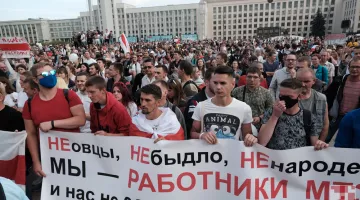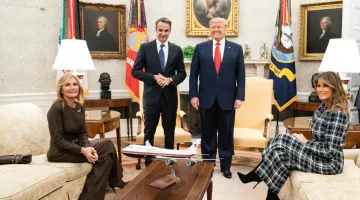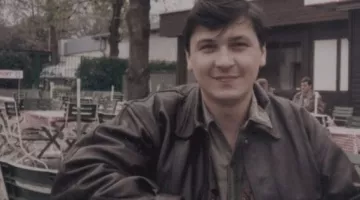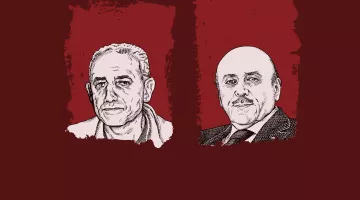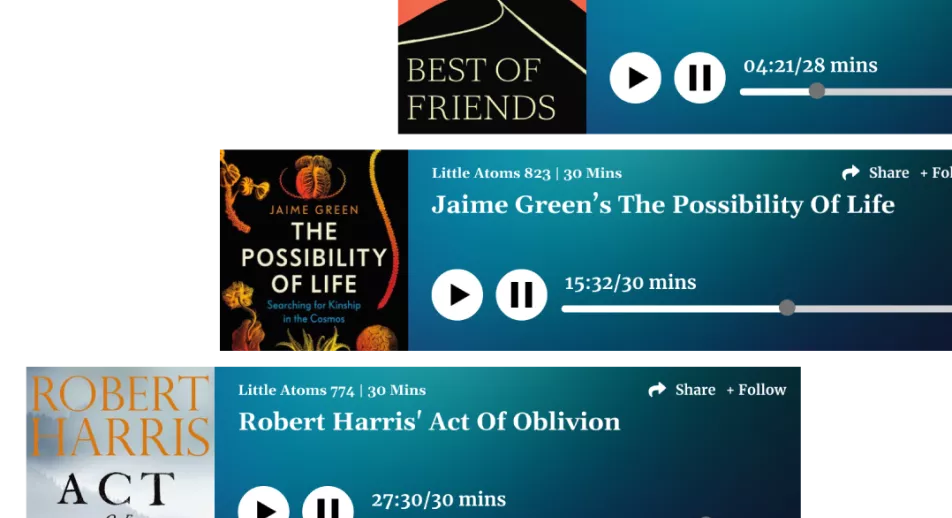From the archive: How Euroscepticism went mainstream
Does anyone have a good word left for the European Union?
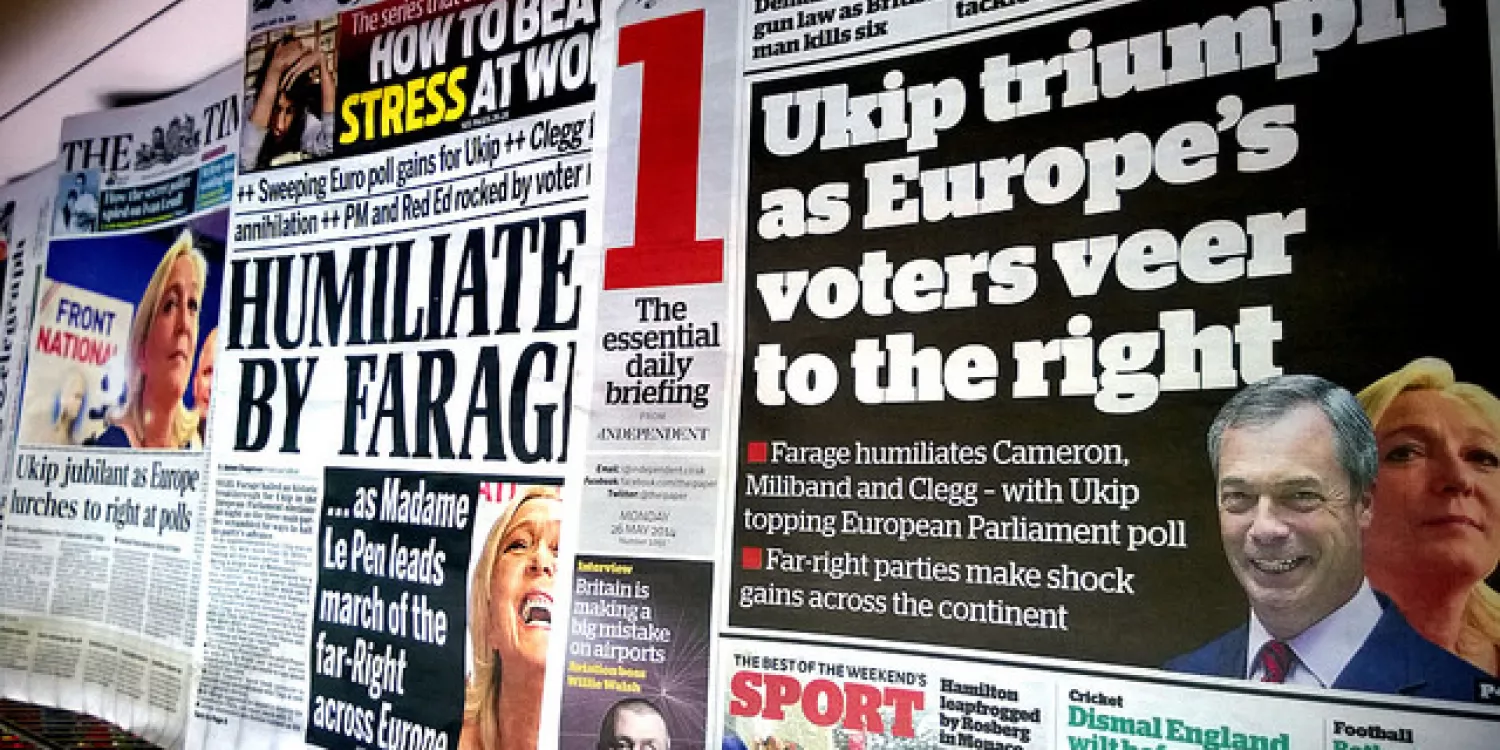
Does anyone have a good word left for the European Union?
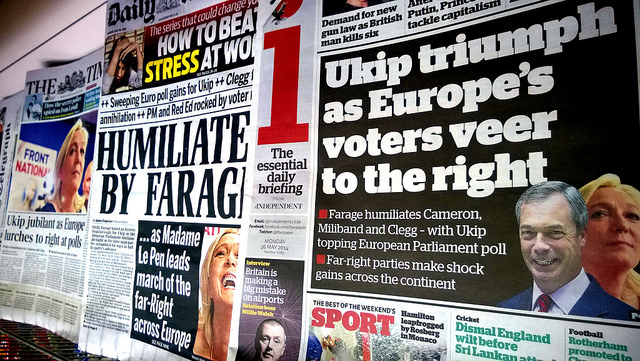
First published 20 January 2015
Is it possible to be objective and impartial when reporting on the European Union? The EU is rarely relevant in itself from a journalistic point of view, and the common EU interest is discussed only when it comes to showing good intentions in times of external crises, like a war, or a terrorist threat. For the rest, each country is a separate entity when it comes to EU news, and its priorities emerge from a merry-go-round of mutual influences between politicians, media and public opinion. Europe, from a media perspective, is a vulnerable object.
Not that the media doesn’t pay attention to the EU, on the contrary: the press room of the Brussels institutions is inhabited by a considerable number of correspondents whose output is massive and whose knowledge of the Euro-Leviathan is sometimes superior to that of officials themselves. But the news coming from there seem to have a lifeless, almost mineral quality, and the message, one way or another, does not reach the readers: people feel constantly misinformed about the EU and the idea of Brussels as an inexhaustible source of boring technicalities is very hard to overcome.
In reporting of the EU there are three main issues which are strictly intertwined: information, explanation and opinion. Ideally the last should be separated from the two firsts, but in the case of the EU there is a lingering unresolved question over the legitimacy of the institutions themselves, putting the reporter in the position of someone who had to announce a new national legislation made by a parliament whose functioning is obscure for most of its readers and then, at the same time, explain whether the entire process is legitimate or not. The very way the reporter copes with this task is a statement in itself.
Boris Johnson’s Brussels adventures
For decades, journalists could rely on a shortcut, namely the received wisdom each country had on the EU, whether they were pro or against, what the EU meant for them and which role they wanted to play in it. The European project was born from the ashes of the II World War and through cooperation it was meant to put an end to centuries of conflict. What was not to like? Europe’s scope, its aim and even its name changed over time, but Europe and progress have, for decades, been almost synonymous, even on Fleet Street. But in the 1980s British Euroscepticism was on the rise and thanks to the journalism of Boris Johnson, EU-bashing entered the next level and became a genre in its own right. Based in Brussels as the Daily Telegraph correspondent from 1989 to 1995, Johnson wrote some of the most brilliantly overstated stories about the EU, inaugurating a style which soon be followed by the tabloids.
Five years after the beginning of the euro crisis, Euroscepticism has become a successful British export. In 2010 the break up of the eurozone was something to be avoided by all means and the big questions about the legitimacy of the measures implimented to prevent such a grim scenario were not asked. The EU had become a technocrat’s paradise; some Brussels correspondents admit that at the time neither the magnitude of the social crisis nor the possible democratic deficit in the measures taken received enough coverage from the media. At the same time a third problem was emerging, almost unnoticed: the cultural divide was widening, and Southern and Northern Europe started becoming irreconcilable enemies. Then, all of a sudden, the democratic issue upstaged everything else. The force of the images coming from Athens and, shortly after, from everywhere else in Europe; the youthful energy and comprehensible rage, caught the attention of the media, in particular TV stations who had struggled for so long to illustrate European affairs with anything other than men in suits leaving a dull building to get into a car.
The pro-EU press, which so far had only indulged in some routine critical articles on MEPs’ and officials’ expenses, soon discovered that a dogmatic approach could backfire, and that there was a world to report out there. The usual way forward for pro-Europeans, namely “more Europe”, for the first time sounded almost disturbing.
Only in the UK everything remained more or less the same, and politicians like UKIP’s Nigel Farage raised an interest abroad for their perceived frankness: Europeans wanted to be able to say out loud if and when they did not like their unelected EU leaders. At times, the United Kingdom with its established Euroscepticism seemed to be the most faithful partner of the EU.
At least the criticism coming from its shores were predictable. The main problem with it is that the stories coming from the tabloids were so outlandish that they did not allow any rebuttal. How can one answer a headline stating that Brussels wants corpses to be disposed down the drain? With whom can you protest when there is no one attending the press conferences in Brussels or coming only for the summits, when national delegations have all the power and the EU communication is more toothless than ever? The more a newspaper is assertive in its EU-bashing, the least likely it is to have a Brussels correspondent, because editors know the rule: the moment you send someone to Brussels is the moment your correspondent will start seeing too many nuances and thus stop writing the sharp reports the paper wants.
Europe: united in scepticism
Paradoxically, the European Union is more united than ever, but for the wrong reason, namely scepticism. Over the decades, a dangerous equation has been built. It is the one according to which pro-Europeanism is an intellectual construction and Euroscepticism is the truth. Tear off the mask, and you’ll see how bad Europe is! This is the rhetoric the media have used to deconstruct a project they never really bought into, and they managed to make other countries believe that intellectual honesty equals being anti-EU. This is also the result of years of partisan reporting and the lack of debate, possibly due to the fact that governments themselves did not want to promote a serious scrutiny of the EU. For each and every government the EU has provided the best scapegoat ever, the strict teacher that imposed measures which are not popular nor easy to present to the voters. Half a decade into the euro crisis, journalists and their readers have learned many lessons and have seen the EU from several angles. The world has changed and the reasons to be together have possibly increased, even if member states have become less comfortable in their cohabitation.

